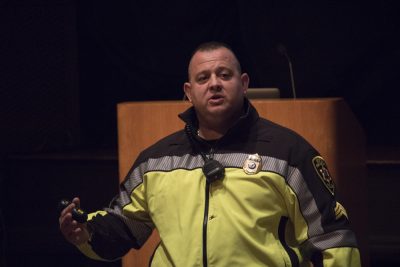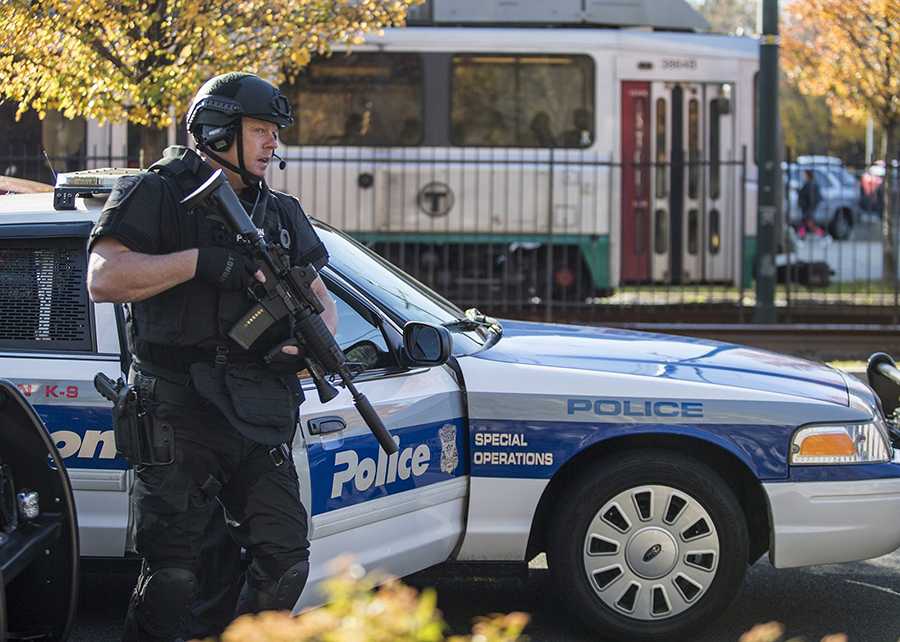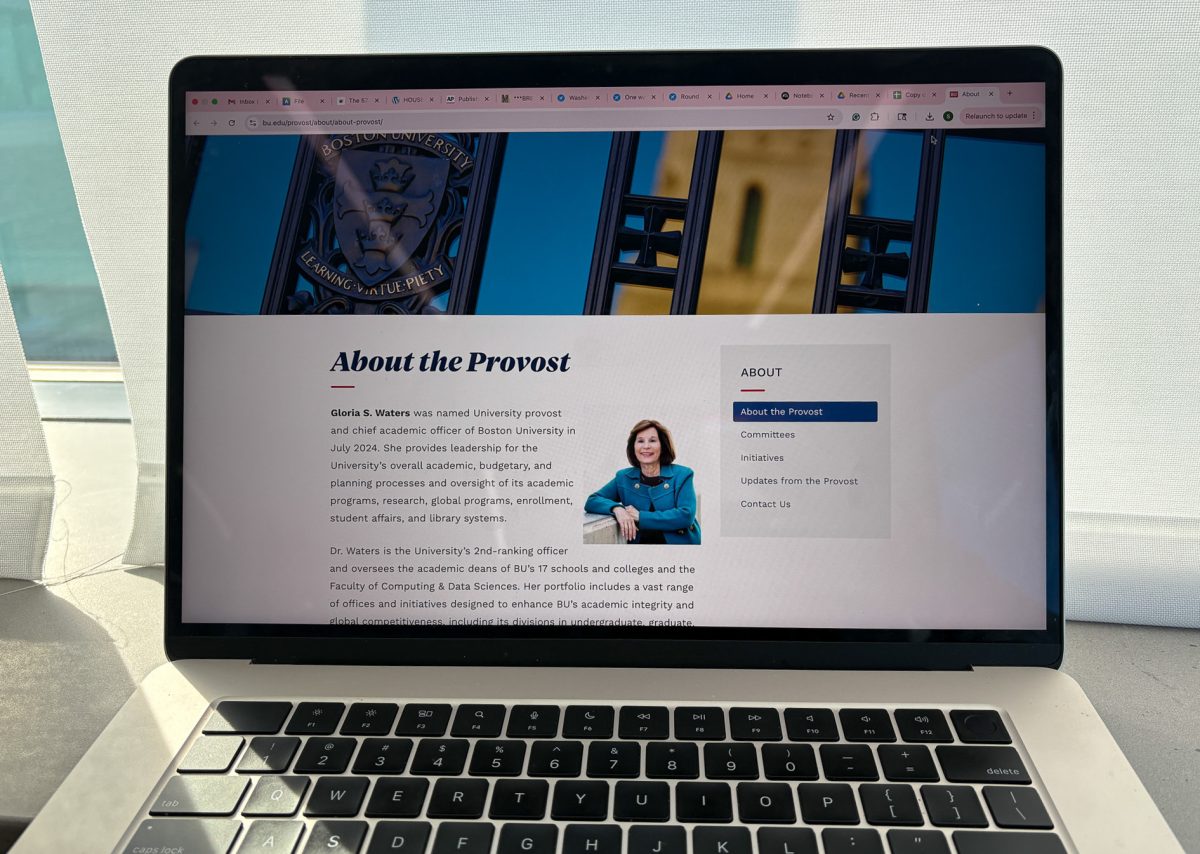
An active shooter training session led by the Boston University Police Department on Thursday taught students, faculty and staff the fundamentals of what to do if there were to be a gunman on campus. The discussion was one of several the department has held for the BU community over the last few weeks.
The session, held in the Tsai Performance Center, lasted just 30 minutes, but BUPD Lt. Robert Casey said that was by design. The department wants these trainings to be short and centrally located because its staff believes they are something that everyone on campus should get the chance to see.
BUPD has offered active shooter trainings for several years now, Casey said, but the shooting at Marjory Stoneman Douglas High School in Parkland, Florida last month made these sessions especially relevant.
“With what happened in Parkland on February 14, there was more of a call,” Casey said. “Now it’s, ‘Listen, we need to provide more training for our community,’ and we thought the best way to do it would be [with this training].”
Casey said he is “very, very confident” in both BUPD and BU’s ability to respond to an active shooter emergency, citing the department’s one-minute response time following a false alarm about a man with guns and bombs holding hostages in Mugar Memorial Library in November of 2016.
“It’s about having a plan for that emergency situation that arises and knowing your environment,” he said.
A video from the Department of Homeland Security was played at the training, encouraging people to follow the action plan of “run, hide, fight” if they find themselves in an active shooter situation.
The presentation also stressed several ways individuals can help the police in these situations, like knowing their address, remaining calm and avoiding pulling a fire alarm when it’s not necessary.
The BUPD and other emergency preparedness staff go through their own emergency trainings annually, but BU spokesman Colin Riley said there has been a heightened interest in preparing for an active shooter situation since the shooting in Parkland.
He noted that regardless of the university’s own preparation for an emergency situation, people on campus are ultimately responsible for their own safety.
“There will be the properly trained people responding in very short order, whether it’s on this campus or anywhere else in the country,” Riley said, “but you want to give people the confidence and the information on which to act.”
In January, the department did their own active shooter simulation at the Fitness and Recreation Center while students were on break. But they also make community outreach a priority. In addition to open trainings, the BUPD presents active shooter trainings directly to specific departments or student groups which request them.
About a dozen people were in the audience of Thursday’s presentation.
Bonnie Teitleman, the director of the Faculty and Staff Assistance Office, said she did not go to the training specifically because of what happened in Parkland, and that it is something she would have attended regardless.
“I think it’s a good thing to know more about and be prepared for,” Teitleman said. “I just think it’s an important subject for everyone.”
Daniel Camacho, the assistant director of BU’s conference housing operations, said it was because he oversees students that he feels it is his responsibility to know what to do in this kind of emergency.
“I work with a lot of students during the summertime, so I’ll have about 60 to 70 student employees,” Camacho said. “… I want to make sure that there is a plan in place should anything like that happen. For us, the students are the most important part of what we do, so in working with them I want to make sure they’re safe.”
Ellen Wieckowski, a graduate student in the College of Arts and Sciences, said part of her work involves being a teaching fellow, and in that role, she wants to know how to respond if a shooter were on campus.
“Sometimes I’m the only teacher, and the only older adult with the students in the classroom,” Weickowski said, “so I think it’s important to think about what would I do if I’m in a situation where I need to get kids to safety or try and prevent them from getting hurt in some way.”
Additional active shooter trainings will be held on April 10 and 11.


























































































































